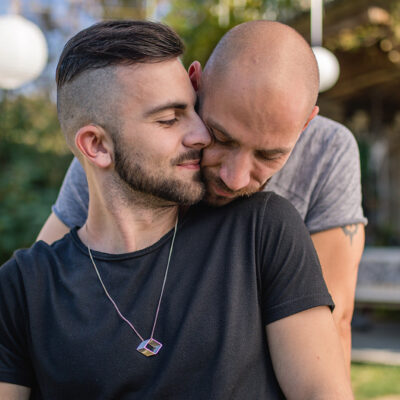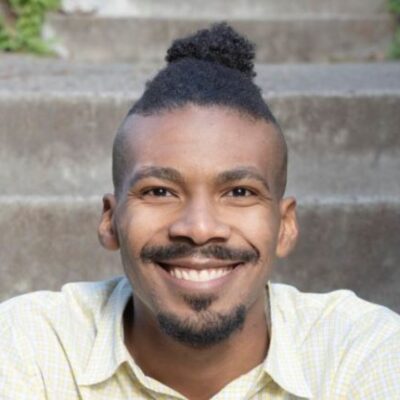In Georgia in the early 2010s, what was available to me as a LGBTQ person during my high school sex education class was… inadequate, to say the least. Now, my heart weighs heavy as GOP-led state governments are making LGBTQ* sex education even more inaccessible in public schools across the country.
The latest wave of anti-LGBTQ legislation comes only two years after Arizona lawmakers retracted their efforts to ban HIV/AIDS curriculum that “promotes a homosexual lifestyle” after facing massive public outlash and a lawsuit. However, this state’s legislature has made a second attempt in the spring of 2021, now framing the issue as a parents’ rights issue–stating that parents must provide consent for their child to participate in discussions about gender identity, sexual orientation, or HIV/AIDS in sex education classes. Parents must even sign off on teaching historical material, including the 1969 Stonewall Riots and the gay rights movement.
Following Arizona’s lead, Tennessee and Missouri lawmakers are drafting similar measures which would require parents to be notified before instruction on sexual orientation or gender identity (but would exclude historical references). Idaho legislation, which has already passed the House and now awaits Senate action, also requires notifications and opt-ins, including for discussion of sexual orientation outside of sex education classes.
Despite these efforts by state legislatures, public support for LGBTQ youth continues to grow, and as LGBTQ youth mature into adulthood, they’ll need to have a sex education that prepares them for a healthy life. Because of the failures of my own high school education system, I had to bumble through life learning how to protect myself from self-study on the internet and through podcasts, TV, and friends. Even today, I meet LGBTQ adults who are still largely unaware of important aspects of queer sexual health. So, whether you’re young, old, a thoughtful person, or just a GOP state lawmaker, these are important topics to know.
In this two-part series, I’ll lay out eight topics I didn’t learn in sexual education, starting first with four that represent the physical mechanics of sex, and the next four that represent more of the mental and emotional aspects of sex.
1. PrEP, PEP, and Undetectable=Untransmittable.
PrEP, a drug that has prevented the transmission of HIV with a 99% efficacy, has been out on the market ever since I’ve been in high school. I had been sexually active for five years before discovering this once-a-day medication, which ensures that I stay HIV-free. Most individuals experience no side effects, and despite rumors of it being “too expensive,” it can be free with most insurances and because there are numerous cost assistance programs for the uninsured. And for those who have already been exposed to the virus, but aren’t on PrEP (also known by its brand names Truvada or Descovy), there’s an alternative (sort of like the Plan B of HIV), called PEP. PEP, when taken up to 72 hours after exposure can significantly lower the chances of HIV transmission. Thanks to increasingly effective treatments, so many people living with HIV have what’s known as an Undetectable=Untransmittable status. Their viral loads are so low, the CDC says there is “effectively no risk” of transmission when engaging in oral, anal, or vaginal sex.
2. STIs don’t make you dirty. Most are curable.
Upon moving to San Francisco, I contracted my first STI–gonorrhea. It was asymptomatic, and identified quickly. Because I was on my daily prescription for PrEP, I was seeking sexual health care at San Francisco AIDS Foundation’s sexual health clinic Magnet, and was therefore receiving regular testing. The treatment was quick and easy and seven days later, I could get back to hanky panky. The reality of contraction and treatment was far less painful than I had imagined. My high school education in Georgia had me believe that if I so much as undressed in front of another person, Sebastian and every critter from The Little Mermaid’s deep blue sea would be knapping at my pubes.
3. How to douche.
If you’re queer, I seriously hope that Sex Education was a part of your early pandemic Netlfix binge. If not, Season 2, Episode 6 is where my beloved characters deal with numerous dramas, one of them concerning the topic of anal douching. Heartthrob Rahim teaches us the mechanics to ensure shit doesn’t happen. In short, the sigmoid colon, where our bodies are designed to hold our poop, is located well above the rectum, which means that it lies farther inside our bodies than a penis, dildo, or fingers can reach during penetrative anal sex. For those of us that eat high fiber diets and evacuate regularly, douching may not be necessary. And for those of that do require cleaning, San Francisco AIDS Foundation’s anal douching safety tips are extremely helpful.
4. The HPV vaccine is for everyone.
The HPV vaccine, which prevents the transmission of the strain of the virus that develops cancer and genital warts, was originally recommended only for people with vaginas by the CDC. As scientific evidence grew, the CDC amended it’s guidelines to include everyone in their preteens through 26 years old, too. Adding to the confusion, my primary care doctor explained to my dad that the vaccine was specifically for sex between a man and a woman. His narrowly defined definition didn’t consider that men could pass it between each other and that those men could then pass it to others if either of them engaged in vaginal sex. This lack of clarity led my father to decline me getting the vaccine, since he assumed it was not for gay men. It wasn’t until I began visiting my college’s LGBTQ Center that I realized that the HPV vaccine is for everyone, regardless of sexual orientation, and chose to take the necessary precautions.
In What I Didn’t Learn In Sex Ed (Part 2), I’ll expand on these topics, adding four more, including, pleasure can come in multiple forms, how to give consent & how to say no, mental health is sexual health, and you get to decide what sex means to you.










